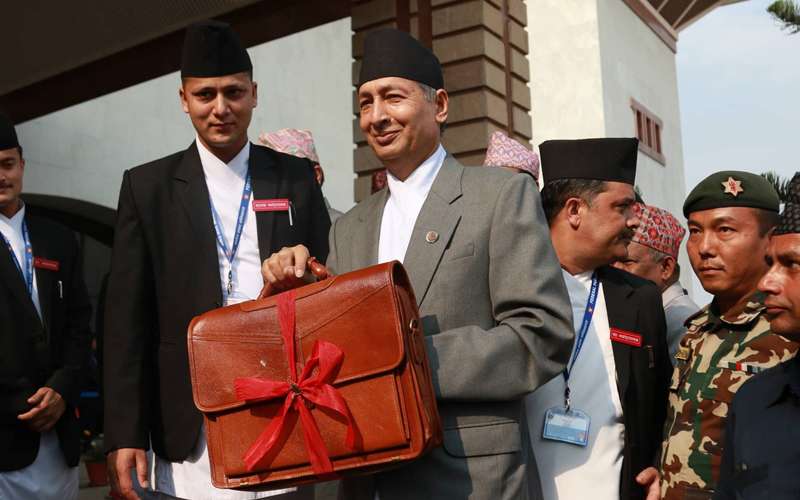At a time when the country’s economy has been ravaged by the Covid-19 pandemic causing a huge loss of government revenue, Finance Minister Dr Yuba Raj Khatiwada is unveiling the Federal Budget for fiscal year 2020/21 today facing a big pressure to have a delicate balance between management of resources and stimulus package to help start the recovery of the crisis-stricken economy.
According to officials at the Ministry of Finance (MoF), the key focuses of budget for the upcoming fiscal year will be on minimising Covid-19 impacts on Nepal’s economy, enhancement of health infrastructure and employment generation. Ministry sources say that the government will allocate significant amount of money for health infrastructure. Similarly, the budget will also prioritise commercial agriculture and farming to provide employment opportunities to those who have lost their jobs inside and outside of the country due to the pandemic. “There will be arrangement in the budget for supplying required human resource to the local levels through job bank,” said a MoF official engaged in preparation of budget who wished not to be named.
Tax and non-tax revenue, foreign aid and internal borrowing - major income resources for the government- are under immense pressure right now because of the abrupt halt in domestic economic activities and severe disruptions in Nepal’s foreign trade. The fact that revenue collection reached only half of the targeted amount of Rs 1,112 billion by mid-May shows the level of immense pressure government is currently under in terms of resource management. The MoF source say that budget for the upcoming year will have austerity measures to curb unnecessary expenses. It is being said that the size of the Federal Budget for FY2020/21 will be similar to the budget of the current fiscal year. The severe constrain in resources has led the government to put its high hopes on foreign aid for the upcoming budget.
As the government is yet to respond calls to announce stimulus package to kickstart economic recovery, all eyes are on the Finance Minister now to see how he addresses the demand of the private sector and unemployed people. It has been estimated that stimulus package of Rs 200 billion is immediately needed to support the ailing economy.
At the time of the crisis, resource management has become cumbersome for the government also because of its obligation to mandatory liabilities such as pension, salary and allowances to civil servants, security personnel, payment of principle and interest of foreign borrowings and social security allowances. According to the Financial Comptroller General Gopinath Mainali, 60 percent of expenses in the budget of current fiscal year have been allocated for mandatory liabilities. The government currently spends Rs 55 billion in pension, Rs 66 billion in social security allowances to 2.9 million people, Rs 100 billion in principle and interest payment of foreign loans and Rs 300 billion in renumeration of security personnel and teachers. This liability of government has been increasing every year.
The share of development budget allocated for the current fiscal year is just 26 percent of the total allocations. According to Mainali, the government can lower the resource management pressure if it cancels unnecessary civil service positions, commissions, political appointments and cuts down number of ministries and divisions.
Jagdish Chandra Pokharel, former vice chairman of National Planning Commission said that the government’s recurrent expenditure has been increasing constantly than capital expenditure since 2008 when the country was declared a republic state. According to him, the country’s overall economic system has been moving in uncontrolled ways due to this imbalance.






















